Big Capital in an Unequal World: The Micropolitics of Wealth in Pakistan
By: Rosita Armytage
-
Rs 1,270.75
- Rs 1,495.00
- 15%
-

You save Rs 224.25.
Due to constant currency fluctuation, prices are subject to change with or without notice.
Following the hidden lives of the global “1%”, this book examines the networks, social practices, marriages, and machinations of the elite in Pakistan. In doing so, it reveals the daily, even mundane, ways in which elites contribute to and shape the inequality that characterizes the modern world. Operating in a rapidly developing economic environment, the experience of Pakistan’s wealthiest and most powerful members contradicts widely held assumptions that economic growth is leading to increasingly impersonalized and globally standardized economic and political structures.
“This is a fascinating ethnography of the ‘micro-politics of elite lives’…a depressing but important read and a necessary corrective to every study of Pakistan that concludes with an aspirational list of policy reforms.” • Journal of the Royal Anthropological Institute (JRAI)
“Through remarkable access, rich descriptions, and incisive analyses, the author deepens our understanding of the reproduction of elites and inequalities. She provides important insights into the spaces and relationships through which capital is accumulated, channeled, and secured by elites, all the while taking seriously the question of gender, ‘race,’ nation, and sexuality as it relates to class formation. Her book provides a rich resource for future research to explore old and new forms of elite integration and division…In an increasingly interdependent and unequal world, books like this enable us to better understand the consequences of elite formations for all of our lives.” • FOCAAL
“A rich, very insightful and highly engaging biography of Pakistan’s business and industrial elite.” • Nafisa Shah, Member of the National Assembly of Pakistan.
“An entertaining, surprising, and lively account of the secret life of the global elite in their particular parochial Pakistani setting. Scholars of Pakistan, of economic and political anthropology, and of development, will all surely look forward to this book with eager anticipation.” • Caroline Schuster, Australian National University
Following the hidden lives of the global “1%”, this book examines the networks, social practices, marriages, and machinations of the elite in Pakistan. In doing so, it reveals the daily, even mundane, ways in which elites contribute to and shape the inequality that characterizes the modern world. Operating in a rapidly developing economic environment, the experience of Pakistan’s wealthiest and most powerful members contradicts widely held assumptions that economic growth is leading to increasingly impersonalized and globally standardized economic and political structures.
“This is a fascinating ethnography of the ‘micro-politics of elite lives’…a depressing but important read and a necessary corrective to every study of Pakistan that concludes with an aspirational list of policy reforms.” • Journal of the Royal Anthropological Institute (JRAI)
“Through remarkable access, rich descriptions, and incisive analyses, the author deepens our understanding of the reproduction of elites and inequalities. She provides important insights into the spaces and relationships through which capital is accumulated, channeled, and secured by elites, all the while taking seriously the question of gender, ‘race,’ nation, and sexuality as it relates to class formation. Her book provides a rich resource for future research to explore old and new forms of elite integration and division…In an increasingly interdependent and unequal world, books like this enable us to better understand the consequences of elite formations for all of our lives.” • FOCAAL
“A rich, very insightful and highly engaging biography of Pakistan’s business and industrial elite.” • Nafisa Shah, Member of the National Assembly of Pakistan.
“An entertaining, surprising, and lively account of the secret life of the global elite in their particular parochial Pakistani setting. Scholars of Pakistan, of economic and political anthropology, and of development, will all surely look forward to this book with eager anticipation.” • Caroline Schuster, Australian National University
Big Capital in an Unequal World: The Micropolitics of Wealth in Pakistan
By: Rosita Armytage
Rs 1,270.75 Rs 1,495.00 Ex Tax :Rs 1,270.75
Zubin Mehta: A Musical Journey (An Authorized Biography)
By: VOID - Bakhtiar K. Dadabhoy
Rs 840.00 Rs 1,050.00 Ex Tax :Rs 840.00
Jinnistan- Scary stories to tell over Chai
By: Ayesha Muzaffar
Rs 1,100.75 Rs 1,295.00 Ex Tax :Rs 1,100.75
The Deficit Myth - Modern Monetary Theory and the Birth of the People's Economy
By: Stephanie Kelton
Rs 1,645.00 Ex Tax :Rs 1,645.00
Myths Illusions and Peace: Finding a New Direction for America in the Middle East
By: Dennis Ross
Rs 1,095.00 Ex Tax :Rs 1,095.00
The Origins of Political Order From Prehuman Times to the French RevolutioN
By: Francis Fukuyama
Rs 4,495.00 Ex Tax :Rs 4,495.00
Manning Up: How the Rise of Women Has Turned Men into Boys
By: Kay Hymowitz
Rs 995.00 Ex Tax :Rs 995.00
The Obama Syndrome: Surrender At Home War Abroad
By: Tariq Ali
Rs 1,036.00 Rs 1,295.00 Ex Tax :Rs 1,036.00
The Quest For Meaning: Developing A Philosophy Of Pluralism
By: Tariq Ramadan
Rs 1,116.00 Rs 1,395.00 Ex Tax :Rs 1,116.00
Jinnistan- Scary stories to tell over Chai
By: Ayesha Muzaffar
Rs 1,100.75 Rs 1,295.00 Ex Tax :Rs 1,100.75
The Deficit Myth - Modern Monetary Theory and the Birth of the People's Economy
By: Stephanie Kelton
Rs 1,645.00 Ex Tax :Rs 1,645.00
No recently viewed books available at the moment.
Zubin Mehta: A Musical Journey (An Authorized Biography)
By: VOID - Bakhtiar K. Dadabhoy
Rs 840.00 Rs 1,050.00 Ex Tax :Rs 840.00
Big Capital in an Unequal World: The Micropolitics of Wealth in Pakistan
By: Rosita Armytage
Rs 1,270.75 Rs 1,495.00 Ex Tax :Rs 1,270.75
Jinnistan- Scary stories to tell over Chai
By: Ayesha Muzaffar
Rs 1,100.75 Rs 1,295.00 Ex Tax :Rs 1,100.75
The Deficit Myth - Modern Monetary Theory and the Birth of the People's Economy
By: Stephanie Kelton
Rs 1,645.00 Ex Tax :Rs 1,645.00













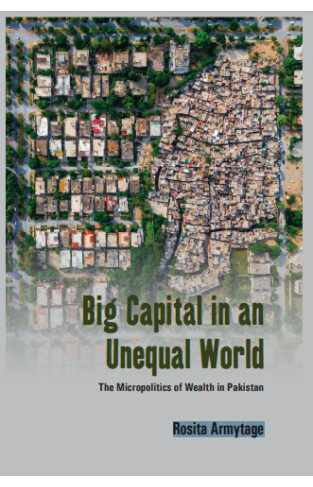
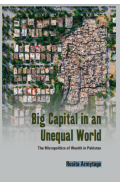
-120x187.jpg?q6)





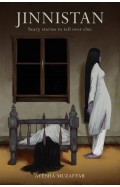
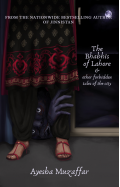
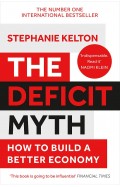
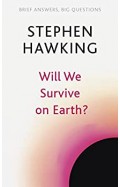


-120x187.jpg?q6)






